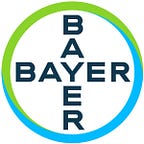Dream big
By Oscar Perez-Ovilla, Federal Regulatory Affairs Manager, Environmental Science Business, Bayer U.S.
When I was a kid, I wanted to become an astronaut. It was the ’80s, and I grew up watching TV about space exploration, the shuttles, and everything happening in the United States after the Apollo moon landing. However, I lived in a different culture and never allowed myself to dream that big.
We didn’t have space programs in Mexico, so it was difficult for me to know or for my parents to guide me on this type of career path. Nonetheless, I was fortunate to have parents who supported me during my early years and earning my Bachelor’s degree in Chemical Engineering, and then to have a wife and children who supported me as I came to the United States in 2005 to get a doctorate degree in the Department of Agriculture and Biological Engineering at the University of Florida.
Thanks to my advanced studies, I now have a fulfilling job as a Federal Regulatory Affairs Manager for Bayer Environmental Science. My own life experiences have shown me the importance of understanding the many options for careers, as well as having support and guidance on the best way to achieve your dreams.
“Science Day”
I want to share what I have learned with young people — especially Mexican youth — in the community where I live and work today in Raleigh, North Carolina, and find ways that I can make an impact on these kids.
That is why I have been proud to be a part of founding and participating for the fourth year in the annual “Science Day” event hosted by Raleigh’s Mexican Consulate. The intention of this event is to show children and their parents the relevance of studying STEM-related careers.
Four years ago, the Mexican Consulate in Raleigh reached out to encourage a group of local Mexicans — me included — to consider establishing a Carolinas’ branch of the global Mexican organization known as Red Global MX, or as it is known more informally (in English) as “Network of Talented People Abroad from Mexico.”
This global organization is comprised of Mexicans who have advanced degrees or very good positions in industry, academia or other areas, and who have the ability to make an impact in the community where we are located, as well as strong ties to support opportunities for people living in Mexico.
So our Raleigh group got together, formalized our chapter, and then we started thinking of ideas of how to improve our community here locally. One of the first ideas, which was inspired by my experience in the science field, was to provide opportunities to the Mexican community — particularly the children — to see what a career in STEM would be for them.
Thus, the concept for the first “Science Day” at the Consulate was developed. The Consulate allowed us to use their spaces to have that fair. And since it was our group’s proposal, the companies we work for, by default, were invited. The company where I work, Bayer, has participated in “Science Day” all four years with its Making Science Make Sense program.
Making Science Make Sense
In addition to Bayer, other participants at “Science Day” this year included North Carolina State University, the University of North Carolina (School of Dentistry and the Morehead Planetarium and Science Center), the Wake County Public School system, IBM, the North Carolina Society of Hispanic Professionals, and Marbles Kids Museum.
Of course I am biased, but I think Bayer’s Making Science Make Sense booth was one of the best at the event. For example, one of Bayer’s stations at the event was a bee exhibition, including a cage into which people could insert their hand and pet bees. Did you know that only female bees can sting? Males don’t have stingers, so you can touch them. This was quite a hit! Seeing the kids’ faces being amazed that they can touch bees — when that is something we usually tell them not to do — was incredible.
In addition to the kids, making the connections with the parents at the event was also important. We wanted to tell parents not to be limited by their current situation, and to tell them that there is a future for their kids and people to guide them — people who speak Spanish — in the schools. Getting the parents involved, and making the connection for them about the schools’ free education on STEM, helps them see that this can be the future life for their son or daughter.
A different reality
My own son, who helped out at the “Science Day” event this year, is 15 now and a rising sophomore in high school. Growing up, he was with me at the University of Florida campus when I was working on my Ph.D., so he remembers the school, my experiment, my studies, and going with me to various conferences. His childhood reality has been much different than the reality I was in contact with in Mexico.
I hope these influences are opening my son’s eyes for his future, just as I hope that “Science Day” has an impact on the children and families who attend. I want these children to find a role model or something to make that connection that says — hey, I can be like that guy! Allowing themselves to dream big is the first step toward an incredible future.
